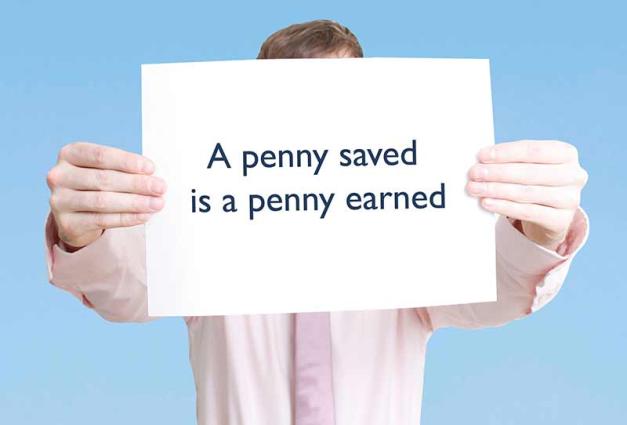Friend or Foe: The Widespread Costs of Getting It Wrong
Beware of good people. They might undermine your whole worldview.
One of the scariest things about evil people is that they sometimes seem so convincingly good. Ted Bundy, Larry Nassar, Bill Cosby—all are figures that shock and fascinate. On top of their crimes, there is something doubly horrifying about these criminals’ ability to present themselves, undetected, as good people. Even decades later, those previously close with Ted Bundy still grapple with how they could have missed the signs, inspiring countless films.
But why is it so upsetting when the people we thought were good turn out to be bad?
Past research has described people’s reactions to such situations as feelings of betrayal and self-interested conflict. But we felt there must be more to this picture. Even when people have no personal relationship with these good-to-bad figures, and no skin in the game, they still seem deeply bothered about such events. Think of the last time you heard about a celebrity’s or sports hero’s misdemeanors—were you disturbed, even though their actions had little consequence for your daily life?
People Want To Feel They Understand Other People Well
Research of ours has shown that in general, people really want the world to have meaning and to meet their expectations; when it does, they feel safe and certain in their decisions. Other research, conducted most prominently by Geoffrey Goodwin and his colleagues, has also demonstrated how important it is that people feel they understand the moral character of those around them. People have all sorts of expectations about other people — their job skills, competencies, hobbies, proclivities — but at the root of it all, people want to know if they’re dealing with good or bad people. Together, these theories suggest that feeling wrong about someone’s supposed good character may be a deeply upsetting, and disturbing, feeling.
People Report Profound Feelings Of Disorientation
We asked over a thousand people to reflect on their experiences of knowing good people who turned out to be bad. The vast majority had experiences like this —they reported on bad behaviors such as infidelity, theft, violence, and prejudice on the part of romantic partners, friends, coworkers, family members, and public figures. Then, they indicated how these experiences affected them.
Across two studies we found that larger swings from good-to-bad predicted how much participants felt the world no longer made sense. In line with this, participants also felt that these experiences affected the way they saw even other, unrelated people: The bigger the good-to-bad switch, the less confident they felt judging the goodness of people in general, and the more cynical they became about other people’s natures. Even a single experience with a good person breaking bad seemed to spill over and affect how they saw others and the world around them.
Showing These Effects In Controlled Experiments
But we also wanted to study this in a formal experiment. One group of participants read about someone who seemed good, but was later revealed to be immoral. Another group read about someone who seemed bad, and continued to act badly. Importantly, the bad behavior was the same across both scenarios; this second group experienced the disgust associated with learning about an immoral person, but not the surprise of learning about someone swinging from good to bad. This would allow us to answer the question: What are the unique effects of seeing a good person break bad?
These effects were as we predicted: Those who witnessed good-to-bad swings in character reported that the world made less sense, people seemed less good, and they themselves were a worse judge of character, compared to those who witnessed consistent bad-to-bad character.
What Does This Say About People’s Expectations For Other People?
Witnessing good people break bad is disturbing, because these experiences alert people to the fact that they are not in the worlds they believed themselves to be in, and they are wrong about the very social assessments they care most about judging correctly. We also learned that people desire so much for the world to make sense, for those around them to be good, and to be able to tell when people are not, that they feel comparatively better when they learn about bad behavior being done by bad people. After all, having clear knowledge about who is good and who is bad makes the world feel more sensible and safer.
These findings line up nicely with other recent research showing that people prefer others to be predictable above all else, and even think predictable people are just better people. In judgments, it seems it’s better to face the devil you know, than the devil you don’t, because the devil you misjudge is the very one that might affect you the most.
For Further Reading
Guan, K. W., & Heine, S. J. (2022). When good people break bad: Moral impression violations in everyday life. Social Psychological and Personality Science. https://doi.org/10.1177/19485506221076685
Goodwin, G. P., Piazza, J., & Rozin, P. (2014). Moral character predominates in person perception and evaluation. Journal of Personality and Social Psychology, 106(1), 148–168. https://doi.org/10.1037/a0034726
Turpin, M. H., Walker, A. C., Fugelsang, J. A., Sorokowski, P., Grossmann, I., & Białek, M. (2021). The search for predictable moral partners: Predictability and moral (character) preferences. Journal of Experimental Social Psychology. https://doi.org/10.1016/j.jesp.2021.104196
Kate W. Guan is a PhD student at the University of British Columbia. Her research focuses on the intersection between morality and interpersonal relationships, and how moral judgments, perceptions, and emotions manifest in everyday contexts.
Steven J. Heine is a professor of social psychology at the University of British Columbia. His research largely focuses on the ways people make meaning in their lives, how culture shapes psychological processes, and how people make sense of genetic causation.




